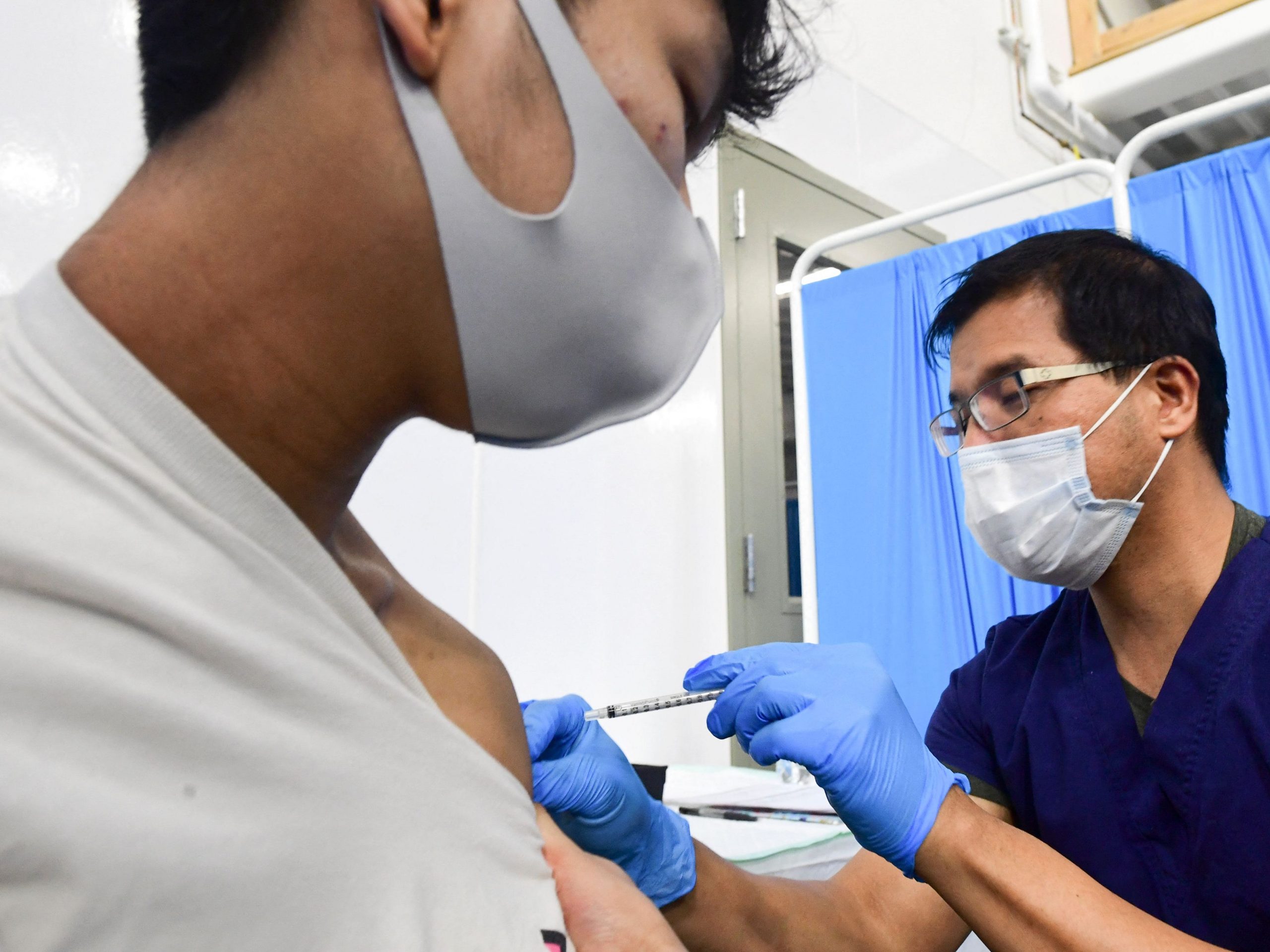
FREDERIC J. BROWN/AFP via Getty Images
- European regulators are investigating whether Johnson & Johnson's vaccine could cause blood clots.
- The investigation was opened after four cases were reported, including one fatality.
- J&J's vaccine was authorized for European distribution last month, but hasn't been given out yet.
- See more stories on Insider's business page.
European regulators are investigating whether Johnson & Johnson's COVID-19 vaccine caused unusual blood clotting after four cases were reported in vaccine recipients, including one fatality.
The European Medicines Agency's Pharmacovigilance Risk Assessment Committee disclosed Friday that they are reviewing the vaccine after three people who received J&J's vaccine in the US and another who was involved in a clinical trial developed blood clots. It's currently not clear if the vaccine caused these clots.
J&J said that it was working closely with experts and regulators to assess data coming in, but that so far, they have found a small number of very rare side effects.
The investigation comes as European states prepare to add the vaccine to their roster of COVID-19 shots. J&J's vaccine was recommended for authorization by the EMA on March 11, but has not yet been distributed.
Approximately 4.9 million doses of J&J's vaccine have been administered in the US, according to the CDC.
It's not the first time the link between vaccines and blood clots has been investigated
The EMA has been closely watching reports of blood clots linked to another vaccine: AstraZeneca's two-dose immunization.
The agency stated Wednesday that blood clots can be a "very rare" side effect of AstraZeneca's shot in people with low blood platelet levels. Approximately 169 cases of blood clots in the brain and 53 cases of blood clots in the spleen had been reported as of April 4, according to the EMA.
Cases of blood clots have also reported in patients who had received Moderna and Pfizer's vaccines, a J&J spokesperson said in a statement.
Issues have been popping up as J&J's shot has rolled out in the US.
One of the factories that produces both drug companies' vaccines is in hot water after it was reported by the New York Times that 15 million doses of Johnson & Johnson's vaccine had been cross-contaminated with AstraZeneca's vaccine at a U.S. factory run by Emergent BioSolutions. None of those shots were distributed to the public.
Officials in Colorado and North Carolina stopped giving out J&J's vaccine this week after two dozen people experienced minor adverse reactions like nausea and dizziness.
J&J's stock traded down about 1% on Friday morning.
